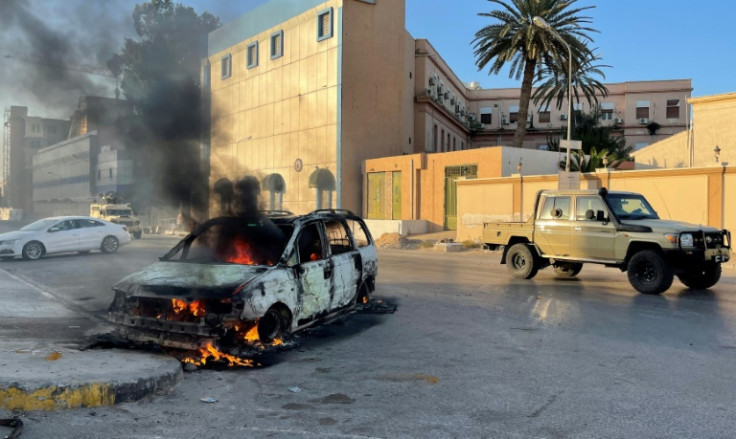AU Says To Organise Libya Reconciliation Conference

The African Union is organising a national reconciliation conference for Libya, AU Commission chief Moussa Faki Mahamat told AFP on Sunday, the latest bid to restore stability to the conflict-wracked nation.
"We have met with the different parties and we are in the process of working with them on a date and place for the national conference," he said after a press conference wrapping up a two-day AU summit.
The meeting will be chaired by the African Union's pointman on Libya, Republic of Congo President Denis Sassou Nguesso, Faki said.
The North African nation descended into a decade of violence following the 2011 overthrow of dictator Moamer Kadhafi in a NATO-backed rebellion.
The resulting power grab gave rise to myriad home-grown militias and prompted interventions by Arab powers as well as Turkey, Russia and Western states.
Since March last year, an administration in Libya's east backed by military leader Khalifa Haftar -- who has been close to Russia and Egypt -- has challenged the UN-recognised government of Prime Minister Abdulhamid Dbeibah, arguing it has outlived its mandate.
Presidential and legislative elections were originally scheduled for December 2021 to cap a UN-sponsored peace process.
But the polls were postponed indefinitely because of strong differences over controversial candidates and the rules on participation.
Faki told AFP that a preparatory meeting for the reconciliation conference had been held in the Libyan capital Tripoli several weeks ago.
"The departure of mercenaries was demanded," he said. "The Libyans must talk to each other, I believe that's a precondition for elections to be held in a stable country."
Earlier this month, the United Nations mission in Libya announced that senior officials from the rival administrations had endorsed a coordination mechanism to clear the country of foreign troops and mercenaries.
It hailed "an important step toward achieving sustainable stability and peace in Libya" after a meeting in Cairo on February 8 along with officials from Sudan and Niger.
However, the discussions led by UN envoy Abdoulaye Bathily failed to produce a clear timetable or concrete measures for the withdrawal of foreign fighters.
The UN estimated in late 2021 that there were more than 20,000 foreign fighters, both military and paramilitary, in the country.
UN Secretary-General Antonio Guterres on Friday issued a new call for the complete withdrawal of foreign fighters and mercenaries, and said elections were the only "credible pathway to legitimate, unified governance".
"What is urgently needed is the political will to break the protracted political stalemate and achieve progress on multiple fronts," he said in Addis Ababa.
"The absence of elections worsens economic insecurity, heightens political instability, risks renewed conflict, and raises the spectre of partition."
Haftar used fighters from Chad, Sudan, Niger and Russia's Wagner mercenary group in his failed attempts to take Tripoli between April 2019 and June 2020.
Hundreds of Wagner fighters have remained in Libya's oil-rich east as well as the south.
Turkish troops have been stationed in the west, controlled by Dbeibah's government, offering training for Libyan soldiers.
The so-called "5+5" Joint Military Commission, which brings together representatives of both eastern and western Libya, has been working to guarantee the withdrawal of foreign fighters as part of a ceasefire signed in October 2020.
© Copyright AFP 2025. All rights reserved.





















